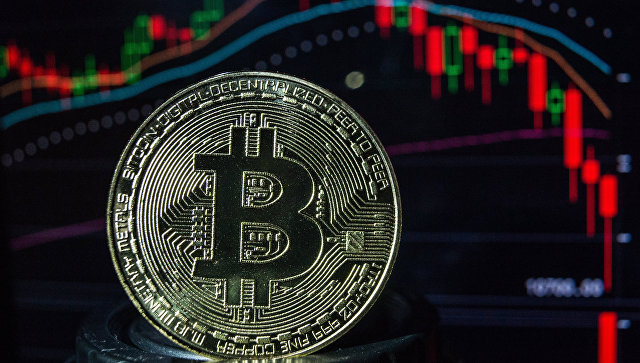
In the ever-changing panorama of economic challenges, high inflation has surfaced as a formidable challenge, unsettling the equilibrium of conventional financial systems. Reacting to this upheaval, Bitcoin has ascended as a beacon of financial fortitude, offering a sanctuary for individuals and economies contending with the corrosive impacts of hyperinflation. Click on the image given below.
Understanding High Inflation Economies
Definition and Causes of High Inflation
High inflation, distinguished by a sustained surge in prices, undermines the purchasing power of a nation’s currency. Frequently arising from factors like an overabundance of currency, disruptions in the supply chain, or geopolitical instability, its consequences are far-reaching, affecting citizens’ livelihoods and economic stability.
Impact on Traditional Financial Systems
High inflation creates a ripple effect through conventional financial institutions. Savings diminish, investments lose value, and the trust in established monetary frameworks wanes. This erosion of confidence necessitates alternative avenues to safeguard wealth and preserve financial stability.
Historical Context of High Inflation Economies
Examining historical instances of hyperinflation provides valuable insights into the cyclical nature of economic challenges. From the Weimar Republic to Zimbabwe, these historical precedents underscore the urgency for adaptive financial solutions.
Bitcoin as a Hedge Against Inflation
Characteristics of Bitcoin That Make It Resilient
Bitcoin’s decentralized nature, limited supply, and cryptographic security features position it as a resilient store of value. Its immunity to central authority manipulation and scarcity mimicking precious metals make it an attractive alternative in times of economic uncertainty.

Store of Value: Comparing Bitcoin to Traditional Assets
Comparing Bitcoin to traditional assets reveals its potential as a superior store of value. While fiat currencies and commodities succumb to inflationary pressures, Bitcoin’s decentralized nature shields it from external manipulations, rendering it an attractive option for preserving wealth.
Analyzing Bitcoin’s Performance During Periods of Hyperinflation
Historical data showcases Bitcoin’s performance during periods of hyperinflation. As traditional assets falter, Bitcoin’s value often experiences an uptick, underlining its capacity to serve as a reliable hedge against the devastating effects of inflation.
Adoption and Acceptance of Bitcoin in High Inflation Regions
Case Studies: Countries Embracing Bitcoin Amid Economic Uncertainty
Examining countries that have embraced Bitcoin in response to economic uncertainty provides real-world evidence of its potential to mitigate the impact of high inflation. Venezuela and Argentina stand out as notable examples where Bitcoin has gained traction as a viable alternative.
Regulatory Challenges and Responses
The adoption of Bitcoin in high inflation regions is not without its challenges. Regulatory uncertainties and concerns surrounding illicit activities necessitate a nuanced approach. Understanding these challenges is crucial to fostering a balanced and secure environment for Bitcoin adoption.
The Role of Public Awareness and Education
Promoting public awareness and education is paramount in ensuring a smooth integration of Bitcoin into high inflation economies. Bridging the knowledge gap empowers individuals to make informed decisions, fostering a more inclusive and resilient financial ecosystem.
Bitcoin’s Influence on Monetary Policies
Impact on Centralized Banking Systems
Bitcoin’s decentralized nature challenges traditional centralized banking systems. As an alternative form of currency, it prompts a reevaluation of existing monetary policies, encouraging a more dynamic and adaptive approach to economic governance.
Debates Surrounding Bitcoin and Central Bank Digital Currencies (CBDCs)
The ascent of Bitcoin prompts discussions regarding the establishment of Central Bank Digital Currencies (CBDCs). While some perceive CBDCs as a reaction to the challenges presented by Bitcoin, others advocate for a harmonious coexistence, underscoring the necessity for evolution in monetary policies.
Exploring Alternatives: How Bitcoin Can Inspire Monetary Reforms
Bitcoin’s disruptive influence invites policymakers to explore alternatives in monetary reforms. The principles underlying Bitcoin, such as transparency, decentralization, and security, serve as catalysts for reimagining financial systems that can better withstand the challenges posed by high inflation.
Risks and Challenges
Volatility: Addressing Concerns and Misconceptions
Bitcoin’s perceived volatility often raises concerns. However, understanding the factors influencing its price fluctuations is crucial in dispelling misconceptions. Volatility, when viewed through a nuanced lens, becomes a manageable aspect of Bitcoin’s broader resilience.

Security and Regulatory Risks
While Bitcoin offers cryptographic security, risks persist, especially concerning regulatory uncertainties. A balanced regulatory framework is essential to mitigate potential risks, ensuring the stability and security of Bitcoin transactions.
Anticipating and navigating potential challenges is crucial for the sustainable integration of Bitcoin into high inflation economies. Strategic planning, regulatory foresight, and ongoing dialogue can pave the way for a resilient financial future.
Future Implications and Recommendations
Bitcoin’s Potential to Transform Financial Landscapes
The transformative potential of Bitcoin extends beyond its current role as a hedge against inflation. Delving into its implications on broader financial landscapes reveals opportunities for evolution in economic systems, fostering adaptability and resilience.
Policy Recommendations for Governments in High Inflation Economies
Governments in high inflation economies play a pivotal role in shaping the future of Bitcoin integration. Strategic policy recommendations, centered on regulatory clarity, financial education, and technology adoption, can pave the way for a more inclusive and resilient financial ecosystem.
Building a More Inclusive Financial Ecosystem with Bitcoin
Bitcoin’s potential to build a more inclusive financial ecosystem is underscored by its accessibility and decentralized nature. Empowering individuals with financial autonomy and security lays the foundation for a more resilient and equitable economic future.
Conclusion
In conclusion, this comprehensive analysis underscores Bitcoin’s multifaceted role in high inflation economies, underscoring its resilience as a dependable store of value and its potential to shape forthcoming financial landscapes. The significance of Bitcoin in such economic contexts is paramount, offering stability, security, and inclusivity as a pivotal means to alleviate the adverse impacts of economic turmoil. As Bitcoin evolves, the imperative for continued research and dialogue becomes even more pronounced. The ever-changing dynamics of high inflation economies necessitate ongoing exploration, ensuring that strategies for resilience remain adaptable and efficacious in navigating the complexities of the economic landscape.